PCOS is a common yet seldom talked about hormonal condition, women with the condition produce excess male androgens (hormones) such as testosterone. PCOS also enlarges a woman’s ovaries and they contain fluid-filled sacs (follicles), which surround the eggs. Often women may exhibit symptoms and never get diagnosed because they are unaware of what is going on in their body. This list of facts was compiled together with the input of a PCOS expert and three women who suffer from the condition.
- The Endless List of Symptoms
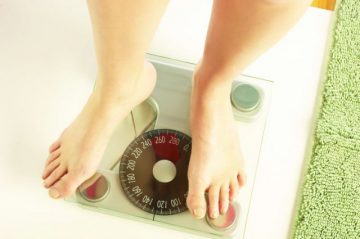
The most infuriating fact about PCOS is it’s seemingly never-ending list of symptoms. PCOS expert and nutritionist Norah Cozens said “weight gain, acne, exhaustion, painful periods are just a few of the symptoms”.
Mallika, a former athlete and PCOS sufferer said “I went to the doctor when I noticed the consistency of my period blood was abnormal” she referred to it as “dry blood”.
Lily a social media worker and PCOS sufferer noticed her periods became increasingly irregular, which led to her diagnoses.
Ruby noticed she was unable to lose weight even “when I used to starve myself”. Ruby also had the misfortune of exhibiting another common symptom of PCOS, excess facial hair growth.
Ruby said “I started growing thick black hair on my face”. Facial hair, insomnia, narcolepsy, irregular periods, no periods, and weight gain are the most common symptoms. However, PCOS also affects sufferers mental health as explored below.
- PCOS Affects Mental Health
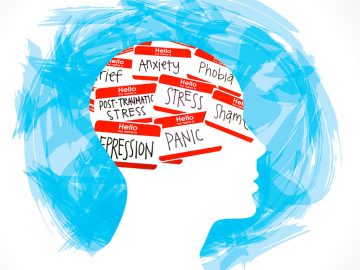
The Endocrine Society’s Journal of Clinical Endocrinology and Metabolism explored the mental health history of nearly 18,000 PCOS sufferers.
The study compared women with PCOS with women of the same age and body mass index (BMI) who don’t suffer from PCOS. The scientists concluded PCOS sufferers are prone to be diagnosed with mental health disorders such as depression, anxiety, bipolar disorder, and eating disorders.
At age 14 Ruby started getting these intense mood swings, within the span of an hour she would refuse to get out of bed, hysterically cry, and then return to normalcy. This is abnormal teenage behaviour because she wasn’t reacting to anything, there were no triggers the mood swings were just random.
A common reaction to mental health issues is to consume antidepressants and anti-anxiety medication. However, Norah suggests that PCOS sufferers stay away from antidepressants because the mood swings and mental health issues are a symptom of PCOS, not clinical depression or anxiety.
- The Relationship Between Insulin and PCOS
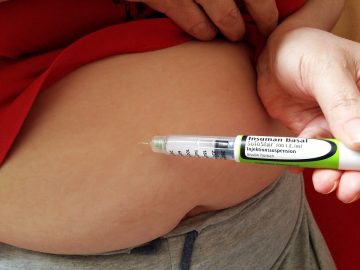
Many women with PCOS (not all) have issues with insulin production.
Insulin is a hormone that regulates blood sugar levels in the body. Too little or too much insulin production can have adverse effects across the body.
Women who suffer from PCOS have a tendency to produce too much insulin. The excess insulin affects their ovaries, causing them to produce too much testosterone. A surplus in testosterone is the primary cause of many PCOS symptoms.
In order to gain some control over PCOS, sufferers have to keep their insulin levels in check. This can only be done through strictly monitoring diets.
High levels of insulin dupe the brain into thinking that there is a glucose shortage in the body, which results in some serious carbohydrate cravings.
- The Temptation to Binge Eat is REAL
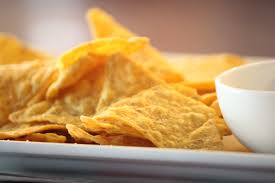
The follicles on the ovaries feed on carbohydrates, fats, and starchy food.
Excess insulin production further adds to the cravings. Norah explained “sometimes women give into these cravings and binge eat carbs, which is a problem because their bodies can’t break down the nutrients in an effective way and it just adds more body weight”.
While it may seem difficult at the time, cravings and binges can be controlled. Binge eating can be triggered for a number of reasons such as a stressful day at work, fights with a partner, and even a bad doctors visit.
However, Norah stressed on the importance of having a binge recovery plan. When cravings are at an all time high either make a warm drink such as tea or drink two big glasses of water back to back.
Head over to a comfortable area in your home, kick your feet up, and savour every sip of that hot drink. The intense need to eat will fade away in a few minutes and you will be overcome with feelings of strength and joy.
- Natural Eating Leads to Natural Pregnancies
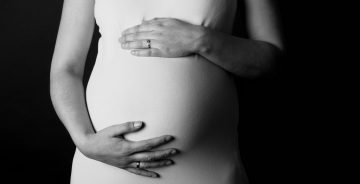
Women with PCOS are prone to infertility. Lily said “The gynecologist told me that I have PCOS and then bluntly told me that I may not be able to get pregnant in the future” she was only 16 at the time of that conversation.
The idea of infertility is daunting and envelopes women in sadness. However, there is hope! Norah carried out a two-year experiment with a 100 PCOS sufferers, many of whom had miscarriages and trouble conceiving.
Norah gave them strict diets and exercise regimes starting with light workouts and then progressively increasing activity levels as the experiment subjects lost body weight and felt more confident.
Norah stressed “you need to be eating high protein and organic diets. Eggs, chicken, fish, vegetables, and fruits.
These diets are metabolic rate diets and are very doable”. After two years of following Norah’s regimen many of the women’s follicles shrunk down and 97 out of the 100 successfully got pregnant and gave birth to healthy babies.
PCOS sufferers are constantly in battle with their bodies and minds. It’s important to keep in mind that progress is progress regardless of how slow it is. It takes tremendous will power to ignore the urges to crave.
However, the more you resist the better you will feel and look. Unfortunately, there is currently no cure for PCOS but it is manageable and sufferers can live a life full of joy if they make a lifestyle change.
Listen: Ruby’s experience with doctors:
Watch: Norah Cozen’s explain the two types of cysts
Follow us on Twitter: @O_vary

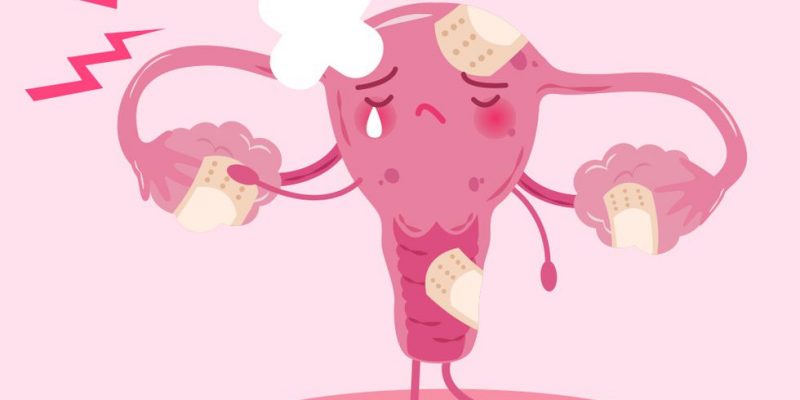
Nick Weston
Thanks for sharing this! It really helps to see real experiences and expert advice together. PCOS can feel overwhelming, but knowing it’s manageable with the right lifestyle makes a big difference. I also found useful info and support at https://www.shemed.co.uk – definitely worth a look!
Mark
This is such an eye-opening post! PCOS really affects so many parts of life, not just physically but mentally too. Thank you for sharing real stories and tips that actually help. I’ve also found helpful info on PCOS at SheMed – worth checking out!
Luna Ward
This article provides a clear and informative overview of PCOS, highlighting its diverse symptoms and impact on women’s health. For those seeking additional insights into managing PCOS, SheMed’s blog offers valuable information on the role of GLP-1 medications in improving insulin sensitivity and supporting weight loss for women with PCOS. It’s a helpful resource for understanding potential treatment options.
Ava Lee
This ‘5 facts’ post does a really good job of highlighting how multi-faceted PCOS is from mental health to insulin issues and how lifestyle has a role. For more on innovative treatments like GLP-1 medications for PCOS, the SheMed article offers some promising insights: https://www.shemed.co.uk/blog/glp-1-medications-and-polycystic-ovary-syndrome-pcos
Mark
This is a really clear post on the struggles of PCOS – the symptoms and mental health impact are often overlooked. I usually check (https://www.shemed.co.uk/blog
) for more simple advice and tips on managing PCOS and overall wellbeing.